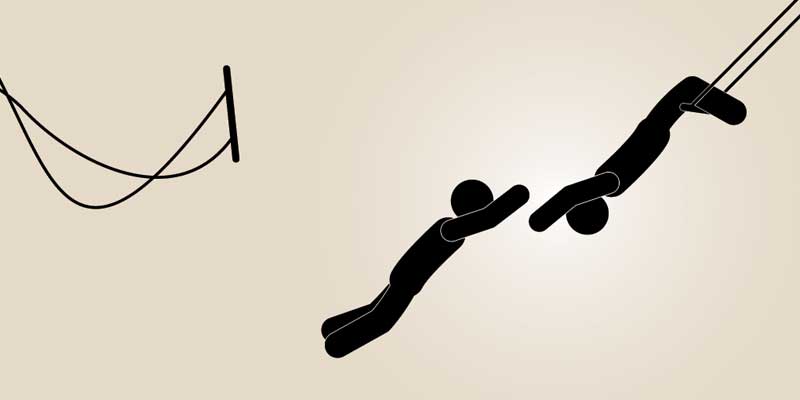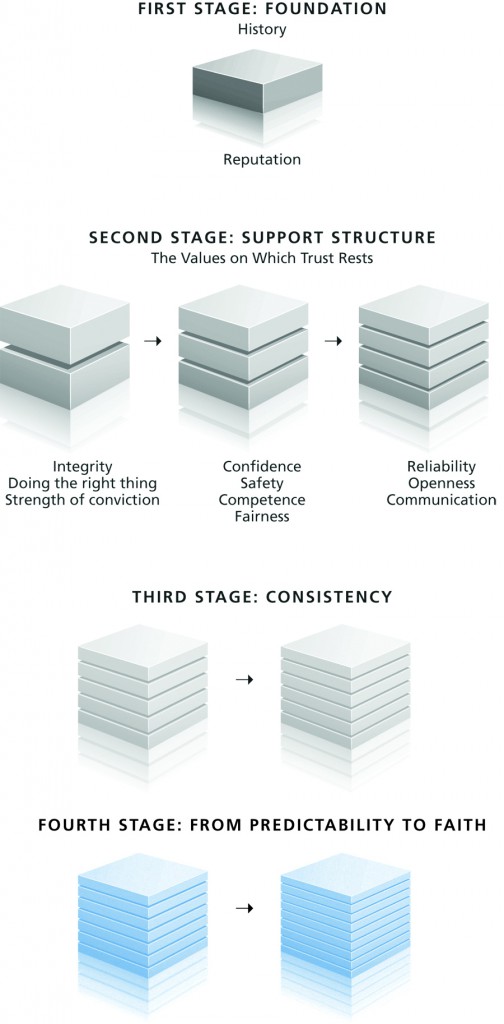Trust — or lack of it — is inherent in every action that we take and affects everything that we do. Trust is the cement that binds relationships, keeping spouses together, business deals intact, and political systems stable. Understanding the meaning of trust allows you to work toward being a trusted and trusting person.
Building trusting relationships is a process that can best be described as stacking layers on a foundation one at a time in such a way that each layer bonds on top of the prior one before another layer is added. This model is described in Creating Trust: A Step-By-Step Guide. The fourth stage is a point at which actions are so predictable that we don’t consciously have to think about building the relationship.
Fourth Stage of Trust: From Predictability to Faith
Faith enables you to go beyond facts and still feel secure about another person or even an organization. Faith is often a result of someone motivated by unselfish reasons caring about your interests above their own. It’s a result of people responding supportively. It’s a result of empathy, of someone showing concern. It’s knowing that someone would never try to hurt you, take advantage of you in a pinch, or criticize you in front of others. It’s knowing that your organization will support you, be available if you need them, coach you, encourage your ideas, and take an interest in your career and in your life.
Faith is strengthened when you put customers’ interests in front of your own, not only meeting, but exceeding their expectations. It’s strengthened when an organization is clearly more interested in helping prospective clients resolve their business issues than in selling them additional products. It’s strengthened when you keep clients informed about new developments that may affect their organization even though the work that you performed has been completed.
Remember, trust is as much in need as the air that we breathe or the water that we drink. Although trust takes a long time to develop, it can be destroyed by a single action. In our complex society, contracts are needed to formalize arrangements, but they should not substitute for honorable relationships. We lose something very tangible when we abandon such intangibles as loyalty, trust, and honor.
Additional Reading:
Creating Trust: A Step-By-Step Guide
How to Build Trust: Creating the Foundation
The Values on Which Trust Rests
Trust Me: 55 Ways to Build Trust and Credibility
Thanks for reading. As always, comments and sharing are appreciated.
If you like this article, subscribe to our blog so that you don’t miss a single post. Get future posts by RSS feed, email or Facebook. It’s FREE. Click your favorite option (top right).







Leave a Comment